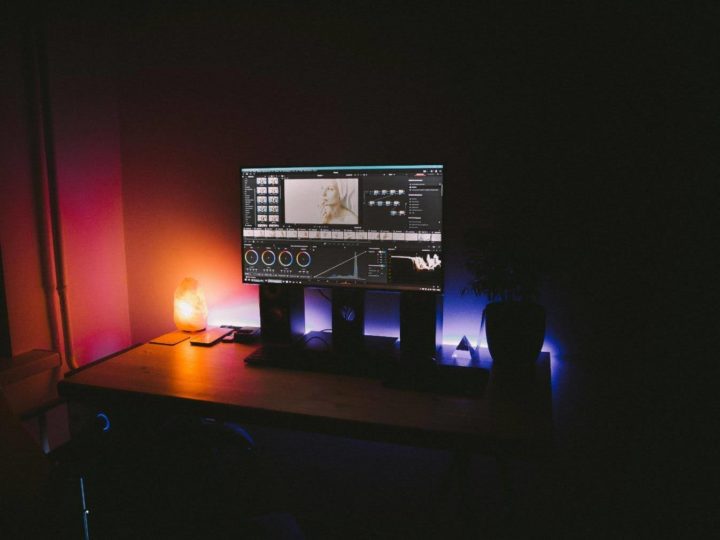Kodak & Making Memories
The fabulous folks at Kodak have graciously offered me a $110 VISA gift card to giveaway to one of my readers. The card can be used anywhere VISA is accepted! Why $110? The “Kodak...
DaVinci Resolve is a powerful video editing software that has become a staple in the marketing industry. Known for its advanced color grading, visual effects, and editing capabilities, DaVinci Resolve is a versatile tool that can elevate marketing content to new heights. Here are the eight best uses for DaVinci Resolve in marketing, providing detailed insights into how this software can enhance your marketing strategies.
DaVinci Resolve is an indispensable tool for modern marketers, offering a wide range of features that enhance the creation and optimization of video content. From professional video editing and advanced color grading to visual effects, audio post-production, and collaborative workflows, DaVinci Resolve provides everything needed to produce high-quality marketing videos. Its efficient media management, multiplatform export options, and integration with analytics tools further streamline the marketing process, making it easier than ever to create impactful, data-driven content.

The core function of DaVinci Resolve is video editing, making it an essential tool for creating professional marketing videos. Whether it's a promotional video, a product demo, or a brand story, DaVinci Resolve offers a comprehensive set of editing tools. Marketers can trim, cut, and rearrange clips with precision, ensuring the narrative flows seamlessly. The multi-cam editing feature allows for easy synchronization of footage from different cameras, making it perfect for event coverage or interviews.
One of the standout features of DaVinci Resolve is its industry-leading color grading capabilities. In marketing, color plays a crucial role in conveying brand identity and emotions. With DaVinci Resolve, marketers can fine-tune the colors in their videos to match brand guidelines or evoke specific feelings. The software's powerful color wheels, curves, and scopes allow for detailed adjustments, ensuring consistency across all marketing materials. Whether creating a vibrant, energetic commercial or a calm, soothing brand video, DaVinci Resolve's color grading tools make it possible.
In the competitive world of digital marketing, eye-catching visuals are crucial for capturing audience attention. DaVinci Resolve includes a Fusion module that enables marketers to create sophisticated visual effects and motion graphics. From animated logos to dynamic text animations, Fusion offers a wide range of tools to make your videos more engaging. This capability is particularly useful for creating explainer videos, where complex ideas are broken down into visually appealing animations that are easy to understand.
5 Tips for Editing and Creating Beautiful Digital Photo Projects
High-quality audio is just as important as visual content in marketing videos. DaVinci Resolve's Fairlight audio panel provides a complete suite of audio post-production tools. Marketers can adjust audio levels, remove background noise, and add sound effects to enhance the viewer's experience. The software supports multitrack audio editing, allowing for the integration of voiceovers, music, and sound effects seamlessly. This feature is invaluable for creating polished, professional videos that resonate with the audience.
DaVinci Resolve is designed to support collaborative workflows, making it ideal for marketing teams. Multiple users can work on the same project simultaneously, thanks to the software's robust collaboration features. Editors, colorists, sound designers, and visual effects artists can all contribute to the project in real-time, streamlining the production process. This collaborative approach ensures that all aspects of the marketing video are aligned and that the final product meets the highest standards.
Managing large volumes of media can be a daunting task, especially for marketing campaigns involving multiple videos and assets. DaVinci Resolve offers efficient media management tools that help organize and categorize footage. The Media Pool allows users to import, manage, and preview media files with ease. Metadata tagging and custom bin organization make it easy to locate specific clips, streamlining the editing process. This feature is particularly useful for long-term marketing campaigns, where maintaining a well-organized media library is crucial.
Marketing videos often need to be optimized for various platforms, including social media, websites, and TV. DaVinci Resolve simplifies this process with its extensive export options. Users can export videos in different formats and resolutions, ensuring compatibility with any platform. The software also offers presets for popular social media platforms like Instagram, YouTube, and Facebook, making it easy to create platform-specific content. This flexibility ensures that your marketing videos look great, no matter where they are viewed.
In today's data-driven marketing landscape, understanding the performance of your content is crucial. While DaVinci Resolve itself does not provide analytics, it integrates seamlessly with other tools that do. For example, marketers can use DaVinci Resolve to edit and optimize videos, then upload them to platforms like YouTube or Facebook, where detailed analytics are available. These insights can inform future content strategies, helping marketers understand what works and what doesn't. By analyzing metrics such as view counts, engagement rates, and audience demographics, marketers can refine their video content to better meet their target audience's preferences.
By leveraging the power of DaVinci Resolve, marketers can produce visually stunning, engaging videos that resonate with their audience and drive results. Whether you're a seasoned video editor or new to the world of video marketing, DaVinci Resolve offers the tools and capabilities needed to elevate your marketing efforts.